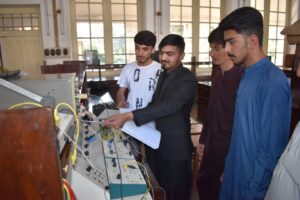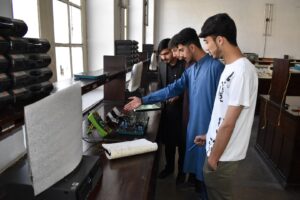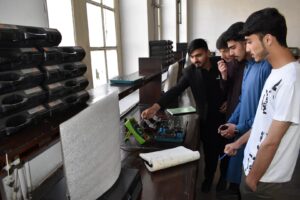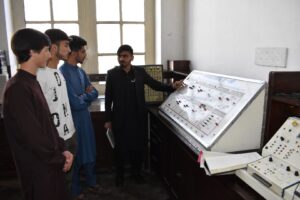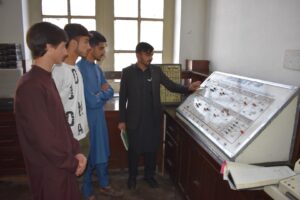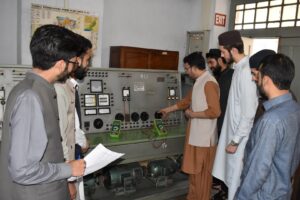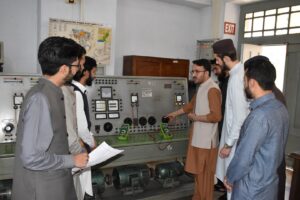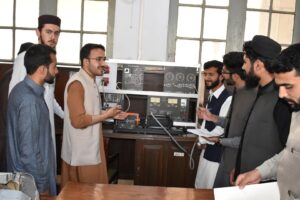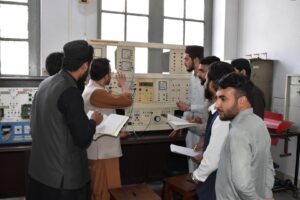Faculty Of Electrical & Computer Engineering
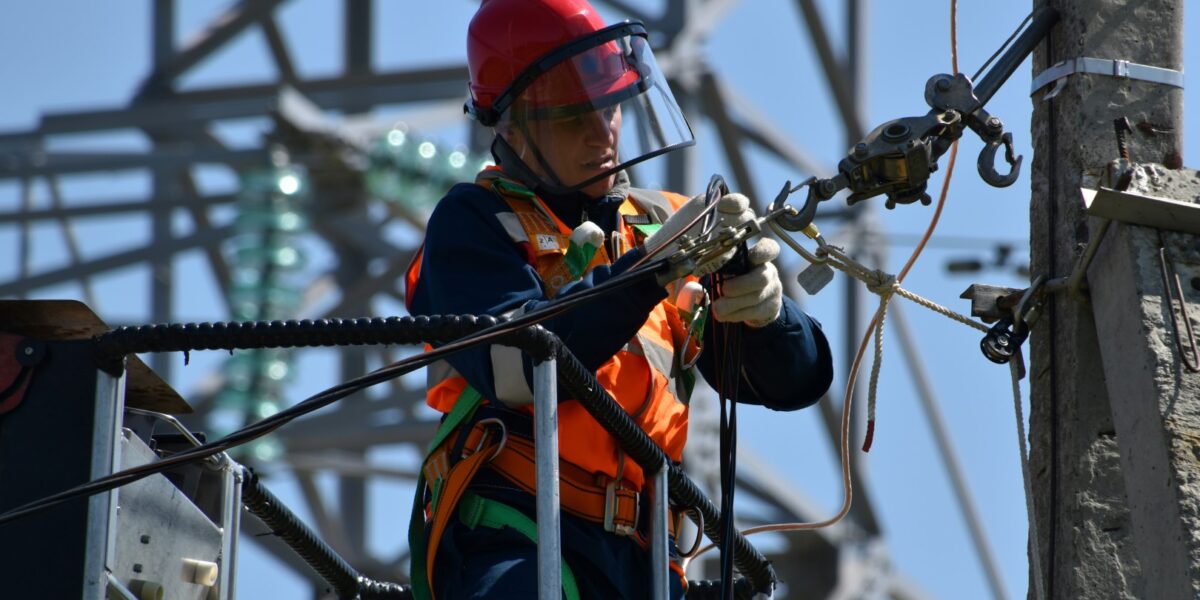
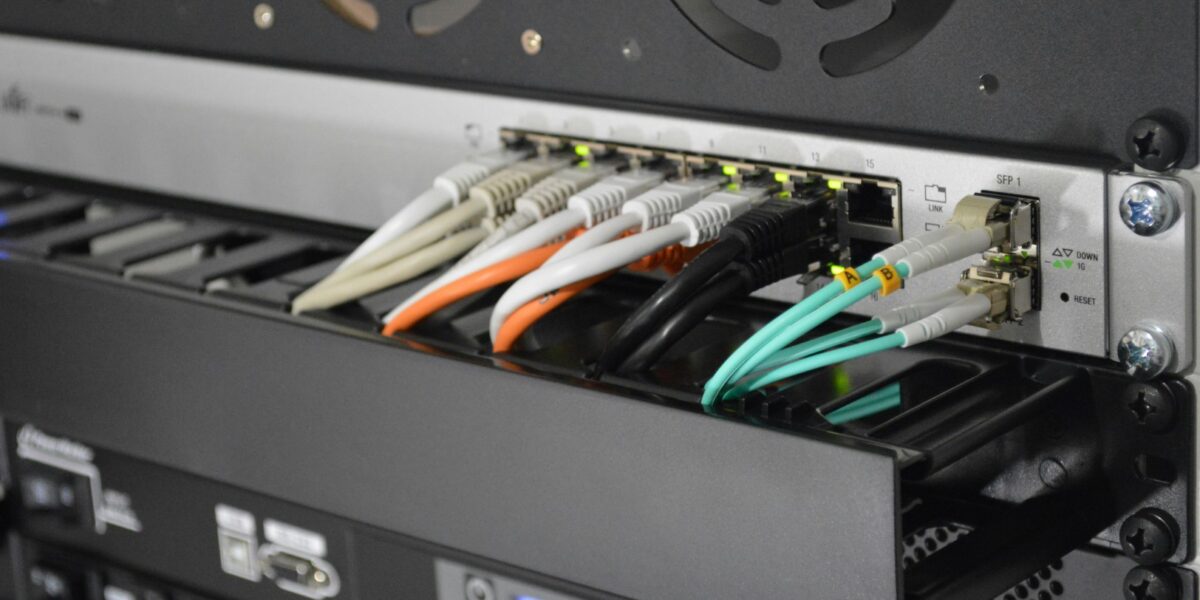
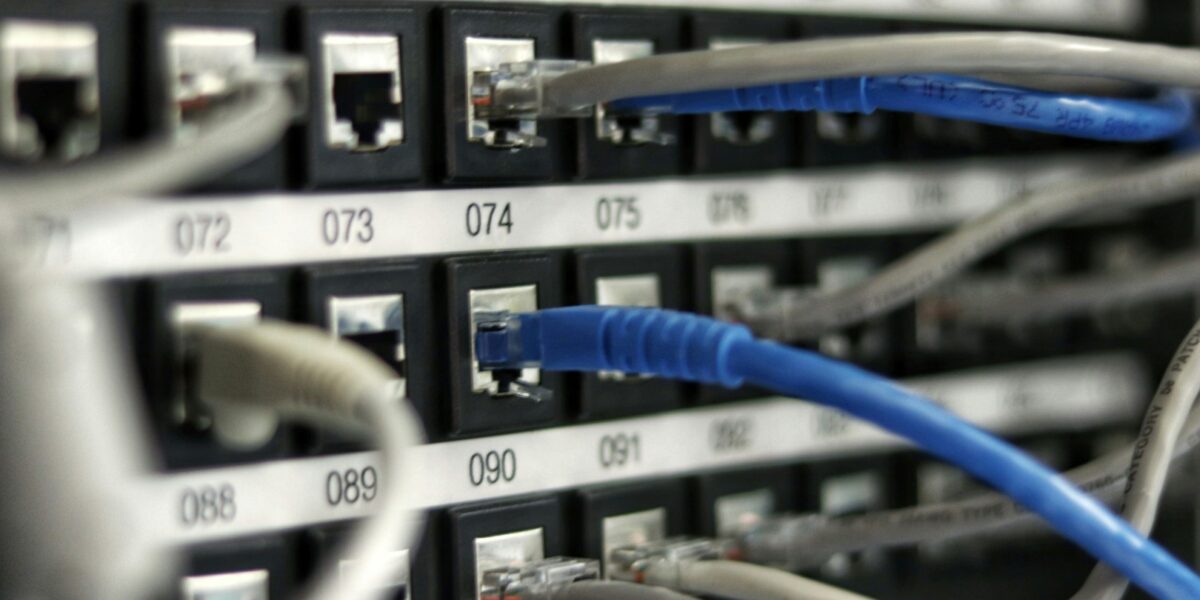



Browse Links
Message From DEAN
Welcome to the Faculty of Electrical and Computer Engineering (FECE). At FECE, we offer cutting edge education and research in the fields of Electrical/Electronics Engineering, Computer Engineering, and Computer Science/IT. All our academic programs are designed to equip the youth with the requisite knowledge and latest technologies to fulfill the industry’s demands, and are accredited from Pakistan Engineering Council (PEC), Higher Education Commission (HEC), and National Computer Education Accreditation Council (NCEAC). The Faculty is spread over four (4) campuses including the Main Campus at Peshawar, the satellite campuses at Nowshera, Abbottabad and Bannu. Our goal is to develop the faculty into an icon of excellence in the country and worldwide. The faculty members at FECE are highly qualified with remarkable accomplishments in research projects/publications and are committed to provide quality education and skills to students. We have produced the best alumni of the University who are serving at various reputed national and international organizations and serving the country with their acquired knowledge and engineering skills.
Prof. Dr. Syed Waqar Shah
Dean, Faculty of Electrical and Computer Engineering
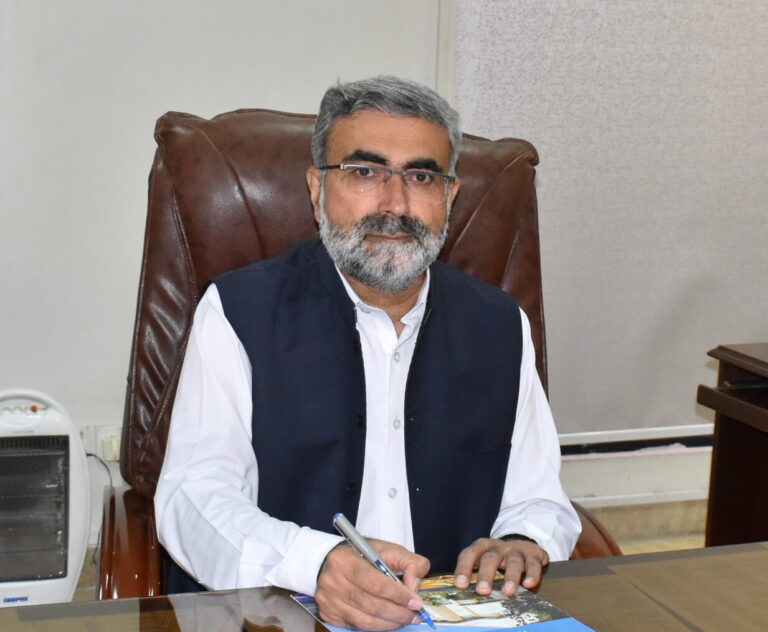
Faculty of Electrical & Computer Engineering
Program Mission
“To produce competent electrical engineers who can efficiently fulfill professional responsibilities in industrial, academic and research organizations.”
About Department
PEC Accreditation team visited Department of Electrical Engineering, Main Campus as part of Re-Accreditation visit, scheduled on November 22-23, 2019 for Re-Accreditation of Electrical Engineering degree program. All batches including Intake Batches 2016, 2017 and 2018 are accredited under Level-II by Pakistan Engineering Council.
The Department of Electrical Engineering was established in 1952 as part of the Faculty of Engineering. Ever since its inception the Department has provided cutting edge education to the people of this province, and its alumni are working at prestigious positions in various national and international organizations. The Department has expanded its academic activities and offers a rich menu of academic programs at various levels. Currently the Department is offering academic programs in two main streams of Electrical Engineering, Communications and Power Engineering.
The thrust of the Department is to prepare young Engineers who are fluent with the state of the art in the field of Electrical Engineering. The academic program is designed to build a strong foundation in the fundamentals of Electrical Engineering along with specialized courses to cover the breadth of the ever expanding realm of Electrical Engineering. The faculty of the Department is highly qualified and is involved in active research, both locally and in collaboration with national and international research organizations. We are committed to transforming our students into leaders in innovation and technology who can manage and shape the industry and businesses of today and tomorrow.
Program Educational Objectives of Electrical Engineering Department
Academic Programs (Power & Communications Streams)
- B.Sc. Electrical Engineering
- M.Sc. Electrical Engineering
- Ph.D. Electrical Engineering
Scheme of Studies
The Department offers a rigorous four year B.Sc. degree programme, based on applied mathematics, electronics (analog and digital) and Communications along with Power Engineering subjects. The broad based theoretical analysis is backed by hectic practice sessions in well-equipped labs . Presently the Department has two disciplines, one is Electrical Communication Engineering and the other is Electrical Power Engineering.
At postgraduate level, the Department offers M.Sc. and Ph.D. programmes both in Communication and Electrical Power Engineering. The areas of active research include Biomedical Engineering, Electronic Devices and Materials, Intelligent Systems, Microelectronics and Computer Systems, Nano-engineering, Photonics Systems, Power Systems Engineering, Artificial Intelligence, Systems and Control, Telecommunications and Signal processing. This gives graduates an unparallel advantage in both technical skills and intellectual faculty to become leaders in overcoming the challenges of modern technological advancements.
-
Laboratories
-
- High Voltage Laboratory
- Electronics Laboratory
- Power Systems Laboratory
- Machines Laboratory
- Material Testing Laboratory
- Control Systems Laboratory
- Measurement and Instrumentation Laboratory
- Communications & EMW Laboratory
- Microprocessor & Digital Electronics Laboratory
- Computer Laboratory
Field Visits
Visits to various industries and research organizations are a part of education and training of graduate engineers. These visits are arranged for students to provide them with a windows of opportunity through which they get a chance to peek at actual engineering at work .
Faculty
Program Mission
“
– To educate undergraduate and graduate majors as well as the broader campus community in the fundamental concepts of the computing disciplines, to create and disseminate computing knowledge and technology, and to use our expertise in computing to help solve societal problems.
– Excellence in research – achieved by tackling problems of real-world complexity of real-world complexity – with the potential for significant long-term impact on the fields of computer science and multidisciplinary computing.
– Excellence in education by providing the nation with computer scientists having a core of knowledge allowing them to adapt to a rapidly changing technology and provide industry, universities and government with the next generation of leaders in the field.
– Excellence in working with industry, government, educators and the community to advance computing and to serve the needs of these organizations and groups.
”
About Department
The Department of Computer Science & Information Technology offers undergraduate and graduate courses leading to the award of Bachelor of Science and Master of Science in Computer Science respectively. It owes its emergence to the relentlessly growing demand of professionals with expertise in areas of computers, communications and information processing technologies. The Department of CS & IT enjoys full support of the engineering departments. Students work in laboratories equipped with state-of-art computer systems running a wide range of applications and specialized software supporting the courses. The department strongly supports the idea of using modern audio visual aids to enhance the learning capabilities of students and provides them a stimulating and challenging environment essential for high quality education. The graduates of this department will be able to meet the highest standards of training for leadership in computer science and information technology and to capitalize on the huge IT market of the 21st century. The Department of Computer Science & Information Technology is concerned with the theory, design, development of computer Science & Information processing techniques.
Program Educational Objectives of Computer Science Department
Academic Programs
- B.Sc. Computer Science
- M.Sc. Computer Science
- Ph.D. Computer Science
Scheme of Studies
Laboratories
- The Department has the following well-equipped laboratories with latest PCs & Sun Micro Systems, equipped with the latest development software and tools. These laboratories have also been connected with the Digital Resources Library of the HEC to provide latest resources and information to the students as well as to the faculty members of the department.
Field Visits
Industrial visits are arranged on regular basis. The major objective of these visits is to enable the students gain first hand knowledge of the application and developments in their fields of specializations. Study tours related to the courses offered are arranged for students during the semester. This helps them explore the practical aspects of their subjects along side the theory taught. Department arranges internship during the summers for practical training of the students. Internships are arranged both in Government and Private sector organizations.
Faculty
Program Mission
“To produce well rounded graduates, equipped with in-depth knowledge of computer systems engineering and excellent problem-solving skills, motivated to solve complex engineering problems while keeping high professional and ethical standards.”
About Department
Computer Systems Engineering is a unique blend of selected fields from electrical engineering, computer science and mathematics required to design and develop computer systems. This branch of engineering provides the Computational apparatus for technological growth in almost all fields of science and technology and has a huge impact on the economic development around the world. Once a blooming technology, it has now taken deep roots in every field of life.
The Department of Computer Systems Engineering (DCSE) strives to impart skills such as digital systems design, computer programming, software engineering, digital signal processing, control systems and microprocessor based systems design and development. Such skills are required in a broad range of technological fields such as consumer and medical electronics, custom electronic design, digital communications systems, computer networks, transport systems, factory automation and digital computer graphics.
The Computer Systems Engineering degree program is a combination of computer hardware and software engineering with a good foundation in electrical and electronics engineering. The degree programme provides a combination of basic fundamental knowledge in computer systems, practical skills in hardware and software design, general problem solving skills required in designing and building systems, verbal and written communications, final year project work, exposure to a variety of existing and leading edge electronics hardware and software technologies. The course work is organized around key areas of Computer Systems Engineering and in quite a few cases; successful completion of basic course is a pre-requisite for registration in an advanced course in a particular area.
Program Educational Objectives of Computer Systems Engineering Department
Academic Programs
- B.Sc. Computer Systems Engineering
- M.Sc. Computer Systems Engineering
- Ph.D. Computer Systems Engineering
Scheme of Studies
Laboratories
- The Department boasts the following well equipped laboratories, enabling students to get a strong practical grasp of the theoretical knowledge gained in the classroom:
- Electronics Laboratory
- Microprocessor and Digital Electronics Laboratory
- Digital Signal Processing & digital Design Laboratory
- Final Year Project Laboratory
- CISCO Laboratory
- Huawei Laboratory
- Communication Laboratory
- Control System Laboratory
- Two general-purpose Computing Laboratories
- Secured IoT Devices Lab
Field Visits
Students are required to complete 800 hours of internship as part of the B.Sc degree programme, which gives them a chance to explore and get hands-on training in their respective fields of interest. Visits to various industries and research organizations are a part of education training of engineers. Both long and short visits are arranged for students, providing them an opportunity to experience practical “engineering work”
Faculty
Mission
“To produce competent electrical engineers who can efficiently fulfill professional responsibilities in industrial academic and research organizations.”
About Department
Electrical Engineering Programme at Jalozai Campus is designed to prepare the students for career in industry and business by providing them with through foundation of the fundamental concepts at undergraduate level while students learn specialized tools about the contemporary electrical engineering during their postgraduate studies. The faculty is dedicated to continue innovation through its programme of academic interaction with the industry and research activities.
Program Educational Objectives of Electrical Engineering Department
Academic Programs
- B.Sc. Electrical Engineering (Communication)
Scheme of Studies
Laboratories
- The Department has well-equipped laboratories in the following areas
- Computer Laboratory
- Electronics Laboratory
- Digital Electronics Laboratory
- Electrical Machines Laboratory
- Microcontroller Laboratory
- Control Systems Laboratory
- Electrical Workshop Laboratory
- Analog, Digital and Fiber Optic Communication Lab
- Measurement and Instrumentation Laboratory
Field Visits
Visits to various industries and research organizations are a part of education and training of graduate engineers. These visits are arranged for students to provide them with a window of opportunity through which they get a chance to see actual engineering at work.
Faculty
Program Mission
“
– To educate undergraduate and graduate majors as well as the broader campus community in the fundamental concepts of the computing disciplines, to create and disseminate computing knowledge and technology, and to use our expertise in computing to help solve societal problems.
– Excellence in research – achieved by tackling problems of real-world complexity of real-world complexity – with the potential for significant long-term impact on the fields of computer science and multidisciplinary computing.
– Excellence in education by providing the nation with computer scientists having a core of knowledge allowing them to adapt to a rapidly changing technology and provide industry, universities and government with the next generation of leaders in the field.
– Excellence in working with industry, government, educators and the community to advance computing and to serve the needs of these organizations and groups.
”
About Department
The Department of Computer Science & Information Technology offers undergraduate courses leading to the award of Bachelor of Science in Computer Science. It owes its emergence to the relentlessly growing demand of professionals with expertise in areas of computers, communications and information processing technologies. The Department of CS & IT enjoys full support of the engineering departments. Students work in laboratories equipped with state-of-art computer systems running a wide range of applications and specialized software supporting the courses. The department strongly supports the idea of using modern audio visual aids to enhance the learning capabilities of students and provides them a stimulating and challenging environment essential for high quality education. The graduates of this department will be able to meet the highest standards of training for leadership in computer science and information technology and to capitalize on the huge IT market of the 21st century. The Department of Computer Science & Information Technology is concerned with the theory, design, development and application of computer science and information processing techniques.
Program Educational Objectives of Computer Science Department
Academic Programs
- B.Sc. Computer Science
Scheme of Studies
Laboratories
- The Department has the following well-equipped laboratories with latest PCs & Sun Micro Systems, equipped with the latest development software and tools. These laboratories have also been connected with the Digital Resources Library of the HEC to provide latest resources and information to the students as well as to the faculty members of the department.
Faculty
Program Mission
“1. Produce professional Engineers to meet the requirement of industry and R&D.
2. Provide Modern Lab Equipment, software, and Research facilities.”
About Department
The Department of Electronics Engineering is functioning in the main building of Abbottabad Campus, which is located in the heart of city surrounded by lush green lawns and tall trees. Mountainous view adding more grandeur to the campus.
Electronic Engineering is one of the fast growing disciplines having its application in almost every field which include high speed data communication, automatic power system control devices, aerospace technology, computer hardware, industrial automation robotic etc. Today’s fast growing cellular technology depends on Electronic Engineering.
Keeping in view the importance of the subject, the University of Engineering & Technology started the program at its Abbottabad campus from fall semester 2004, treating it as specialized discipline not being offered at other campuses of the University. Uptill now six batches have graduated from this campus duly accredited by the Pakistan Engineering Council.
The board of studies of the department has been constituted to revise and update the courses in order to coupe with modern trends in this important engineering discipline. While designing the courses the main emphasis is on concept building so that the graduate engineers are able to co-relate the theoretical knowledge in order to solve the practical problems in the field of electronic engineering. Besides academic activities the department encourages extracurricular activities like sports competition, debates, music concerts etc.
The department regularly organizes seminars and extension lectures for the benefit of the students and faculty. In view of the importance of the subject, the department is planning to establish links with the related industry.
Program Educational Objectives of Electronics Engineering Department
Academic Programs
- B.Sc. Electronics Engineering
Scheme of Studies
Laboratories
- The Department has well-equipped laboratories in the following areas:
- Analog & Digital Communication
- Analog & Digital Electronics Lab
- FPGA, DSP & Microcontroller Lab
- IV. Power Electronics & Machines Lab
- V. Control & Instrumentation Lab
- VI. Computer Aided Engineering Design (CAED) Lab
- VII. Final Year Project (FYP) Lab
Faculty
About Department
Department of Electrical Engineering, UET Bannu Campus became operational in May 2002. The department was established to increase access to professional education in the field of Electrical Engineering for the people of southern KPK. The mission of the department is to augment the modern education expected of all UET undergraduates, to impart a basic understanding of electical engineering build on a foundation of physical sciences, mathematics, computing and technology, and to provide the majors in the department with the knowledge of electrical engineering principles along with the required supporting knowledge of mathematics, physics, computing and engineering fundamentals. The students are provided with an educational foundation that prepares them for leadership roles along diverse career paths in the fields concerned with Electronics, Communications, Energy & Power Systems, and Industrial Control. Presently more than 60 undergraduate students are enrolled annually. The department has produced more than 800 graduate students so far. The growing utilization of the Electrical appliances is a decisive prerequisite for a rapid development of industry. Keeping this in view, Electrical Engineering department at Bannu Campus focuses on establishing the foundation needed to support the study and practice of Elctrical Engineering with emphasis on the graduate level. Outcone objectives from the undergraduate Electrical Engineering include:- Formulate problem in Electical Engineering from real life situations.
- An ability to use the techniques, skills, and modern engineering tools necessary for engineering practice.
- Conceptualize the output of Electrical Engineering problems.
- Perform rudimentary analysis in Electrical Engineering etc.
- Graduates will apply their electrical engineering skills to a variety of challenges in industry, academia, or in the pursuit of other fields.
- Graduates will attain careers in which they become leaders in their chosen fields, work in multidisciplinary teams, make decisions that are socially responsible, and communicate effectively.
- Graduates will continuously learn new concepts, identify new directions, and adapt in response to the needs of a rapidly changing world.
Program Educational Objectives of Electrical Engineering Department
Academic Programs
- B.Sc. Electrical Engineering (Communication)
Laboratories
- The Department has well-equipped laboratories in the following areas
- – Computer Laboratories with high speed internet facility
- – Measurement and Instrumentation Laboratory
- – Basic Electrical Engineering Laboratory
- – Electronics Laboratory
- – Electrical Machines Laboratory
- – Workshop
- – Digital Logic Design Laboratory
- – Communication Laboratory
- – Control Systems Laboratory
- – Microprocessor & Digital Electronics Laboratory
- – Communications & EMW Laboratory
- – Faculty Computer Laboratory
- All the labs include the latest equipment that is operated by highly talented group of experts to meet the current day demands of the relevant field.
Faculty
Key Message
“Dedicated to developing the students into leaders who will lead the world in innovation and technology sectors”.
Academic Programs
- BSc.
- Electrical Engineering (Peshawar)
- Computer Science (Peshawar, Bannu, Abbottabad)
- Artificial Intelligence (Peshawar, Bannu)
- Software Engineering (Abbottabad)
- Cyber Security (Peshawar)
- M.Sc.
- Electrical Engineering (Peshawar)
- Computer Science (Peshawar)
- Artificial Intelligence (Peshawar)
- PhD
- Electrical Engineering (Peshawar)
- Computer Science (Peshawar)
- Artificial Intelligence (Peshawar)
Mission Statement
To produce dynamic electrical and computer engineers/scientists of the highest standards capable of designing solutions for scientific problems and meeting demands of 21st century market place having excellent domain knowledge, skills, and professional ethical values in order to contribute to the socio-economic development of the country.

